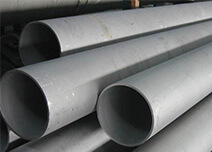Ξ
- SITEMAP
- CONTACT US
- 8618267732328
News
Credibility ,the lifeblood of enterprise!
PRODUCT SERIES
- Fittings
- Butt Welding Fittings
- Forged Fittings
- 180 Degree Elbows
- 90 Degree Elbows
- 60 Degree Elbows
- 45 Degree Elbows
- 30 Degree Elbows
- Equal Tee
- Reducing Tee
- Concentric Reducer
- Eccentric Reducer
- Lap Joint Stub End
- Outlets
- Cap
- Bend
- Cross
- Coupling
- Stainless Steel Lateral Tee
- Bellows Expansion Joints
- Flexible Metal Hose
- Non-Standard/Custom Fittings
- Bleed & Flushing Rings
- Types of Flanges
- Anchor Flanges
- Blind Flanges
- Expander Flanges
- High Hub Flanges
- Lap Joint Flanges
- Long Weld Neck Flanges
- Nipoflanges
- Orifice Flanges
- Plate Flanges
- Ring Type Joint Flanges
- Reducing Flanges
- Slip On Flanges
- Socket Weld Flanges
- Spectacle Blind Flanges
- Square Flanges
- Spades & Ring Spacers
- Threaded Flanges
- Welding Neck Flanges
Your Location: Home > News
News - Yaang
Machining and high frequency welding of stainless steel elbow
DataTime:[2016-9-5]
When the stainless steel elbow processing, whether heating or cooling, they are not consistent because the cooling rate and the time of its surface and the formation of the temperature difference. This will cause the volume expansion and contraction caused stress, called thermal stress.
Stainless steel elbow
Stainless steel elbow under the action of thermal stress, the surface temperature will be lower than the heart, when the end of the cooling shrinkage, not free heart finally cooling, and the surface tension of heart compression. Under the action of thermal stress, the workpiece surface pressure and the heart of tension.
Thus causes this kind of phenomenon is due to the influence of cooling rate, material composition and heat treatment process.
Stainless steel elbow high frequency welding is the use of the alternating current trend skin effect and proximity effect, when the steel after rolling forming, forming a section break open the round tube blank, when the tube billet near the center of the induction coil near impedor, impedance and tube formed at the opening of an electromagnetic induction loop.
In the trend of the skin effect and proximity effect, blank opening edges will produce powerful and concentrated heat effect, and the edge of the weld is rapidly heated, reach the required welding temperature in the roll extrusion, the molten metal to achieve intergranular bonding, cooling after forming a firm butt weld.
Source: Yaang Pipe Industry Co., Limited (www.yaang.com)
Stainless steel elbow
Stainless steel elbow under the action of thermal stress, the surface temperature will be lower than the heart, when the end of the cooling shrinkage, not free heart finally cooling, and the surface tension of heart compression. Under the action of thermal stress, the workpiece surface pressure and the heart of tension.
Thus causes this kind of phenomenon is due to the influence of cooling rate, material composition and heat treatment process.
Stainless steel elbow high frequency welding is the use of the alternating current trend skin effect and proximity effect, when the steel after rolling forming, forming a section break open the round tube blank, when the tube billet near the center of the induction coil near impedor, impedance and tube formed at the opening of an electromagnetic induction loop.
In the trend of the skin effect and proximity effect, blank opening edges will produce powerful and concentrated heat effect, and the edge of the weld is rapidly heated, reach the required welding temperature in the roll extrusion, the molten metal to achieve intergranular bonding, cooling after forming a firm butt weld.
Source: Yaang Pipe Industry Co., Limited (www.yaang.com)

Tel No:+86-18267732328 / Email:[email protected]
Address:Longwan District, Wenzhou, Zhejiang Province, China.
Copyright Notice © www.yaang.com Yaang Pipe Industry Co., Limited All rights reserved.
Yaang Pipe Industry Co., Ltd. is an international supplier of piping solutions for flange, butt welding fittings, socket welding fittings and threaded fittings. Our products are widely used in different industrial fields, including oil and gas, chemical industry, petrochemical industry, power plant, pulp and paper industry, environmental and water conservancy engineering, engineering projects, etc.





